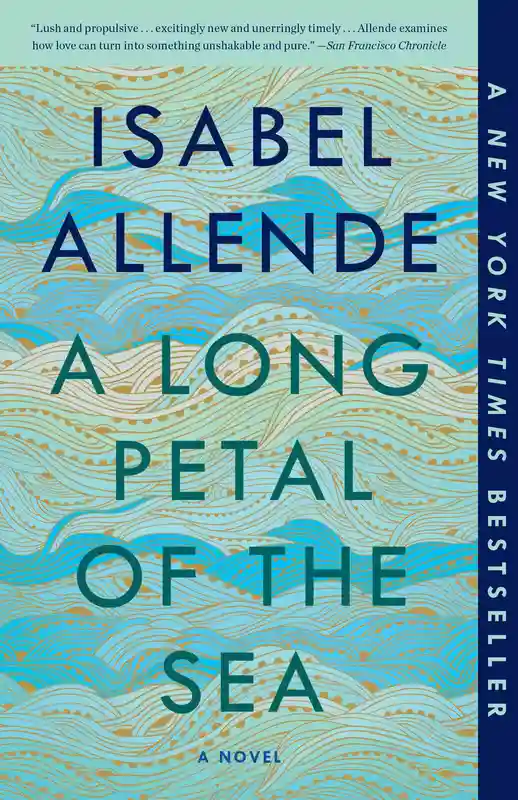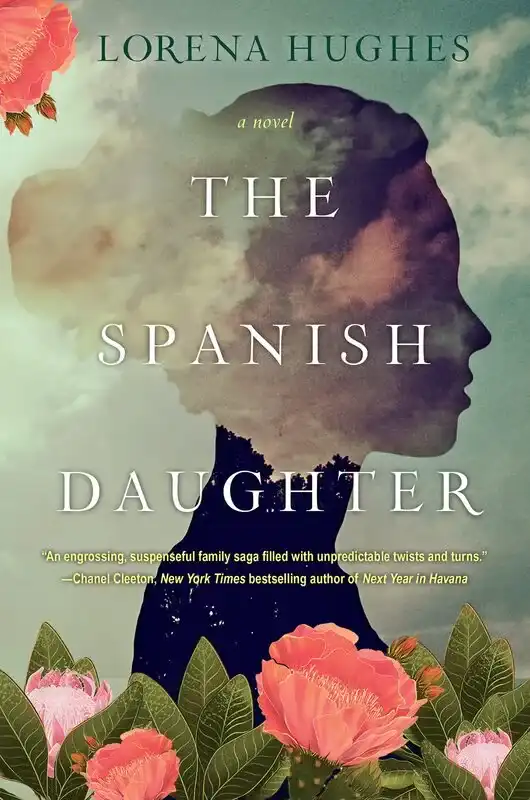Book club questions for Violeta by Isabel Allende delves into the complexities of survival, identity, and family dynamics during the pivotal moments of history.
The novel follows the journey of Violeta, a young woman from South America, as she navigates the world-changing events of the Great War, Spanish flu, Great Depression, and the rise and fall of tyrants. Through her experiences, she comes of age, faces heartbreak and passionate affairs, and ultimately her own place in the world.
About the Story
Violeta comes into the world on a stormy day in 1920, the first girl in a family with five boisterous sons. From the start, her life is marked by extraordinary events, for the ripples of the Great War are still being felt, even as the Spanish flu arrives on the shores of her South American homeland almost at the moment of her birth.
Through her father’s prescience, the family will come through that crisis unscathed, only to face a new one as the Great Depression transforms the genteel city life she has known. Her family loses everything and is forced to retreat to a wild and beautiful but remote part of the country. There, she will come of age, and her first suitor will come calling.
She tells her story in the form of a letter to someone she loves above all others, recounting times of devastating heartbreak and passionate affairs, poverty and wealth, terrible loss and immense joy. Her life is shaped by some of the most important events of history: the fight for women’s rights, the rise and fall of tyrants, and ultimately not one, but two pandemics.
Through the eyes of a woman whose unforgettable passion, determination, and sense of humor carry her through a lifetime of upheaval, Isabel Allende once more brings us an epic that is both fiercely inspiring and deeply emotional.
Book Club Questions for Violeta
1. What did you think about Violeta as a character? How did she evolve throughout the course of the book? Which period of her life was the most interesting to you? Did you learn anything from her story?
2. Violeta tells her story in the form of a letter, a practice inspired by Isabel Allende’s own correspondence with her mother, Panchita. Since Allende was 16, she and her mother would write letters almost daily when they were apart, each writing one half of a shared monologue that recorded their lives. What does the epistolary style add to the overall effect of the novel?
3. The novel is bookended by two pandemics. Did that timeline encourage you to examine what it means to live during and through such times more closely? What does it take to keep going when the world is filled with turmoil and unease?
4. Allende chooses to leave the country unnamed in VIOLETA, though scenes in the novel are inspired by historical events in the region and Allende’s life — such as military coups and dictatorships, the 1918 flu pandemic, The Great Depression, the Women’s Rights movement, etc. Why do you think she made this choice? How did the open-ended setting impact your reading experience?
5. Violeta experiences different kinds and stages of love — expressed through family, security, passion, grief, kinship, tolerance, acceptance and good humor. Discuss Violeta’s various relationships. How does Allende capture the ways we love? In what ways does our capacity for love change over time?
6. Violeta says, “It was clear to me from a young age that although I respected them, my mother and my aunts were stuck in the past, uninterested in the outside world or anything that might challenge their beliefs.” Discuss the ways different generations approach feminism.
7. Violeta is filled with playful, witty humor. What scenes or moments made you laugh? What does humor add to the overall effect of the story?
8. Violeta’s Aunt Pia observes, “Better a boring husband than an unreliable one.” Do you agree? Do you think passion or loyalty is more important for a good marriage?
9. Memory is a major theme in this novel, made up of the unexpected events that make a life. Sometimes it’s a blessing and sometimes it’s a curse, as Violeta says. Discuss how the book explores memory.
10. How does the concept of identity play a role in Violeta’s story? How does her identity change throughout the course of the novel, and how does it affect her relationships?
11. How does the use of multiple narrators, including letters and journal entries, contribute to the reader’s understanding of Violeta’s story?
12. How does the novel portray the idea of hope and resilience, and how do the characters find hope in difficult circumstances?
13. How does Allende use symbolism and imagery to convey the themes of the novel? Can you identify any specific symbols or imagery that stood out to you?
14. In the last chapter, Allende writes, “There’s a time to live and a time to die. In between there’s time to remember.” How did this book make you reflect on your own life? What did you take away from reading it?
Additional Recommendations
A Long Petal of the Sea by Isabel Allende

In the late 1930s, civil war grips Spain. When General Franco and his Fascists succeed in overthrowing the government, hundreds of thousands are forced to flee in a treacherous journey over the mountains to the French border. Among them is Roser, a pregnant young widow, who finds her life intertwined with that of Victor Dalmau, an army doctor and the brother of her deceased love. In order to survive, the two must unite in a marriage neither of them desires.
Together with two thousand other refugees, Roser and Victor embark on the SS Winnipeg, a ship chartered by the poet Pablo Neruda, to Chile: “the long petal of sea and wine and snow.” As unlikely partners, the couple embraces exile as the rest of Europe erupts in world war. Starting over on a new continent, they face trial after trial, but they will also find joy as they patiently await the day when they might go home. Through it all, their hope of returning to Spain keeps them going. Destined to witness the battle between freedom and repression as it plays out across the world, Roser and Victor will find that home might have been closer than they thought all along.
A masterful work of historical fiction about hope, exile, and belonging, A Long Petal of the Sea shows Isabel Allende at the height of her powers.
The Spanish Daughter by Lorena Hughes

Perfect for fans of Julia Alvarez and Silvia Moreno-Garcia, this exhilarating novel transports you to the lush tropical landscape of 1920s Ecuador, blending family drama, dangerous mystery, and the real-life history of the coastal town known as the “birthplace of cacao.”
As a child in Spain, Puri always knew her passion for chocolate was inherited from her father. But it’s not until his death that she learns of something else she’s inherited—a cocoa estate in Vinces, Ecuador, a town nicknamed “París Chiquito.” Eager to claim her birthright and filled with hope for a new life after the devastation of World War I, she and her husband Cristóbal set out across the Atlantic Ocean. But it soon becomes clear someone is angered by Puri’s claim to the estate…
When a mercenary sent to murder her aboard the ship accidentally kills Cristóbal instead, Puri dons her husband’s clothes and assumes his identity, hoping to stay safe while she searches for the truth of her father’s legacy in Ecuador. Though freed from the rules that women are expected to follow, Puri confronts other challenges at the estate—newfound siblings, hidden affairs, and her father’s dark secrets. Then there are the dangers awakened by her attraction to an enigmatic man as she tries to learn the identity of an enemy who is still at large, threatening the future she is determined to claim…
Happy reading! ❤️